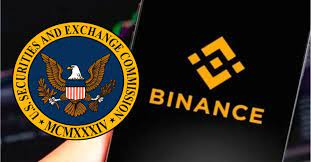Babbitt Column | Economic Ecology at the Edge: Digital Money Payment Breakthrough
Since the birth of the digital currency represented by Bitcoin, how to expand the payment range of digital currency has become a topic of discussion in the currency circle. However, as we have seen, in the technological revolution of the past 10 years, the digital currency based on encryption technology seems to have very little sense of existence. Even during this period, there has been a “banknote-card payment-mobile payment” in the payment field. Iteration, digital currency has not caught too many opportunities, only when the bull market price soared, some businesses want to pick up hot spots, the payment ecology will have a small burst.

But the problem is that the financial nature of the digital currency determines that its price cycle is long and short. Therefore, for most of the time, the payment of digital currency is in a state of silence. Although it can occasionally enter the mainstream society as a performance art, it is always difficult to have a significant share growth in the payment market. As for the distance circle The financial and payment revolutions that the insiders fantasize are quite far away.
Why do digital currencies always wander around the edge of mainstream society? In the final analysis, in fact, the ecology is not good.
- Opera browser: 350 million users can now use Bitcoin to pay directly in the browser
- Tencent Blockchain White Paper: Blockchain startups increase by 250%, global patent growth has slowed
- Bitcoin: an experiment in the form of a new currency
If you look closely at the payment industry, it is not difficult to find that the business itself has a fairly high homogeneity. You use a bank and b bank savings card to brush the pos machine, or use Alipay and WeChat to pay the same single bill, almost no difference in experience. The key is the ecosystem behind the payment tool – you want to give gifts to relatives and friends, you can only use WeChat red packets, and if you want to pay for Taobao orders, you can only use Alipay.
Imagine: Bitcoin is a bonfire? Because those who buy gray assets on the Silk Road can only use anonymous and international bitcoin transfers. Is Ethereum a bonfire? Because those who want to buy a startup certificate can only transfer money on the Ethereum network that comes with smart contracts. In other words, in the four ecological worlds of social networks, e-commerce networks, underground gray production networks, and decentralized investment and financing, WeChat payment, Alipay payment, Bitcoin wallet, and Ethereum wallet are the most hard-core payment tools. Nothing can be done, no one dares to use Alipay to pay on the dark, and WeChat will not accept Bitcoin transfers.
This is actually an important reason why digital currency has never been able to enter the public's field of vision. The economic ecology they are bound to is far from the daily life of people: for contemporary people living in the Internet age, chatting is one. Just need and watch the news is also a kind of just-needed, but buying and buying online is just a need. If you don't believe it, you will open the situational intelligence function of your mobile phone and see the top three applications that occupy your mobile phone usage time. What?
WeChat and Alipay have become the two most paid and the most paid payment tools because they stepped on the two points that occupied the most time for Internet users, and brought this influence out of the social and electricity they depend on. The business circle has expanded into many scenarios such as games, live broadcasts, and knowledge payment.
In contrast, the economic ecology on which Bitcoin and Ethereum depend: is it common for people to buy ash in underground networks and to decentralize investment and financing? Obviously not. This kind of marginal and "informal" initial ecology has determined that digital currencies such as Bitcoin and Ethereum can only stay in their own small circles for a long time, but cannot penetrate and spread into the mainstream society because The average person can't hide from the gray economy they are in. How can they actively embrace the so-called "bitcoin payment revolution"?
Therefore, whether it is Bitcoin, Ethereum or many digital coins based on blockchain, the biggest pain point currently facing is that there is no healthy economic ecology behind the mainstream society. Only find such a The economy and ecology are cut into it, and the decentralized digital currency can establish and spread its influence and ultimately change the overall structure of the payment industry. Otherwise, whether it is the popular shouting slogan or the popular blockchain knowledge popularization, it is actually a very hard work. More than 95% of Internet users may not know the operation principle of the Internet and the network 7-layer protocol is What, but this has never prevented them from using this technology as they please.
Strictly speaking, the development of this digital currency of "expanding the use of ecology" is not without anyone thinking. In the booming blockchain entrepreneurial tide, from many small entrepreneurial teams to the big shop of Sina Netease, many teams have wanted to make their issued certificates become strong ecological by creating explosive applications. The digital currency, and as we have seen, these attempts are almost unsuccessful.
There are many reasons for this. For example, many teams have lost their willingness to continue to promote the project after they have raised huge sums of money and felt the magic of “freedom of wealth”; or the limited strength of the founding team is not enough to make the original The application of competitors' countervailing; or the two-line battle of the product market, busy dealing with the investor community and market value management, resulting in the inability to focus on product development… for various reasons, and so on.
In this way, the digital currency industry can only abandon the development of the incremental application ecology, and instead look for ways to combine with the existing application, that is, the existing explosive products, to create an initial prosperity for themselves. Ecology. However, as people have seen, such an ecology is too difficult to find. The reason is to wait for it: independent non-explosive models, explosions are not independent – look at the entire Internet industry, can not only have a lot of companies in the e-commerce business with Ali, can socially compete with Tencent countable. Even a few potential competitors have already been acquired by them (for example, Jingdong, which Tencent shares can only pay with WeChat), so it is expected that digital currency can be established by cutting into existing explosive software applications. And expansion is actually very difficult.
In the network environment that is still dominated by 4G in the next few years and the bottleneck of digital technology development, Internet companies that can break the existing interest pattern and achieve overtaking of the curve are not expected to be too much, and the digital currency passes through the existing Internet industry. The chances of finding a prosperous ecology and cutting into it are probably limited.
Facebook-led Libra can be counted as a major advancement in the digital currency development ecosystem, but the question is, how many Facebooks can there be in the world? Even the current Libra, how likely is it to survive?
As far as the above analysis is concerned, digital currency is under great pressure both in terms of newly developed software and in the use of existing software products. Although the feasibility of the above two routes cannot be completely denied, the whole The industry must be prepared to fail in related work, and not to make gambling attempts. However, if new and old software products are not working, what other roads can the digital currency have to go?
A good choice is to jump out of software thinking and switch to related hardware. After all, many people may forget that although software such as Alipay and WeChat are essential for people, these products must also be like smart phones. The hardware is a carrier to use. From this point of view, smart hardware such as mobile phones, its potential economic ecology is actually not to lose software such as social and e-commerce. The key is how to carry out the full digging. In the next series of articles, the author will elaborate on the topic of how smart hardware, including mobile phones, will help digital currency to create a prosperous ecology in the future.
We will continue to update Blocking; if you have any questions or suggestions, please contact us!
Was this article helpful?
93 out of 132 found this helpful
Related articles
- Head of FinCEN, USA: Anyone must abide by the Anti-Money Laundering Act (AML), and the stable currency is no exception.
- Full deployment of cryptocurrency regulatory rules in 2020? The FATF will begin a one-year review
- Wuzhen News | BKEX founder Ji Jiaming confirmed attending the World Blockchain Conference, he will bring the heavy news of BKEX
- Speed reading | BTC's monetary policy is overvalued, Ethereum's monetary policy is underestimated
- Interview with Li Lin | Year after returning to the fire coin
- Research shows that bitcoin bull market still needs to wait, institutional admission is still slow
- ChainNode Review: Bit Shield Razor Blade Hardware Wallet






